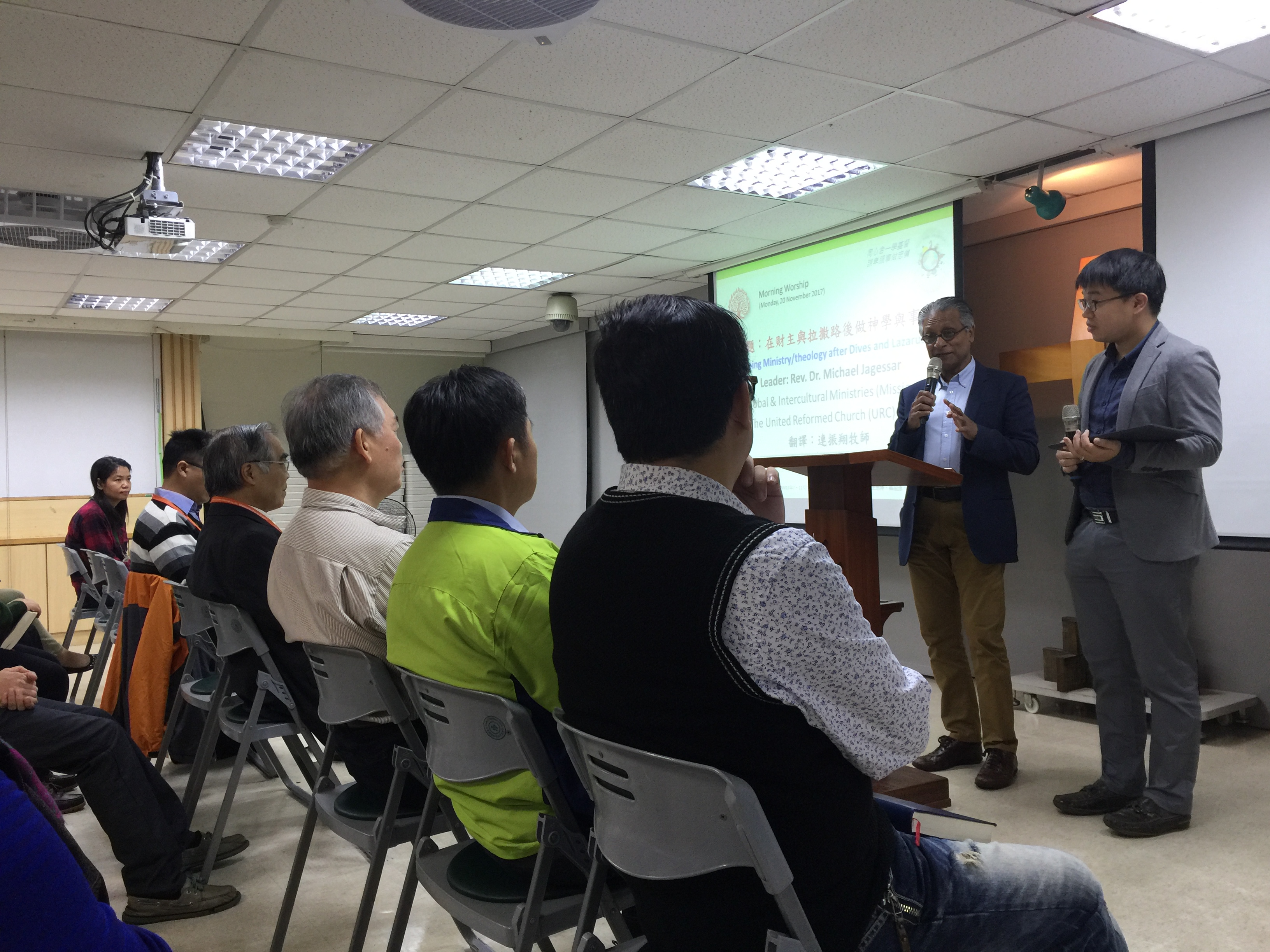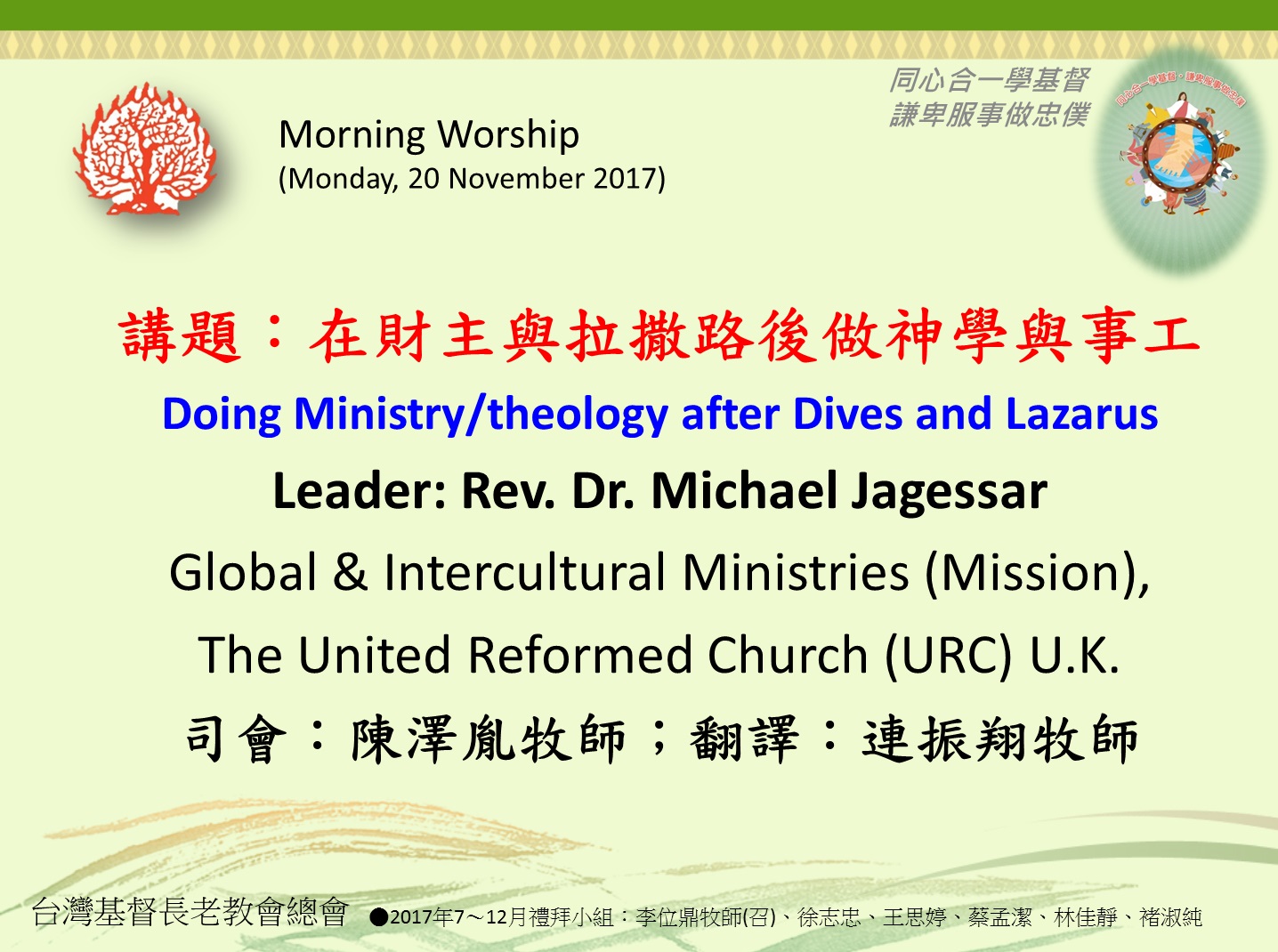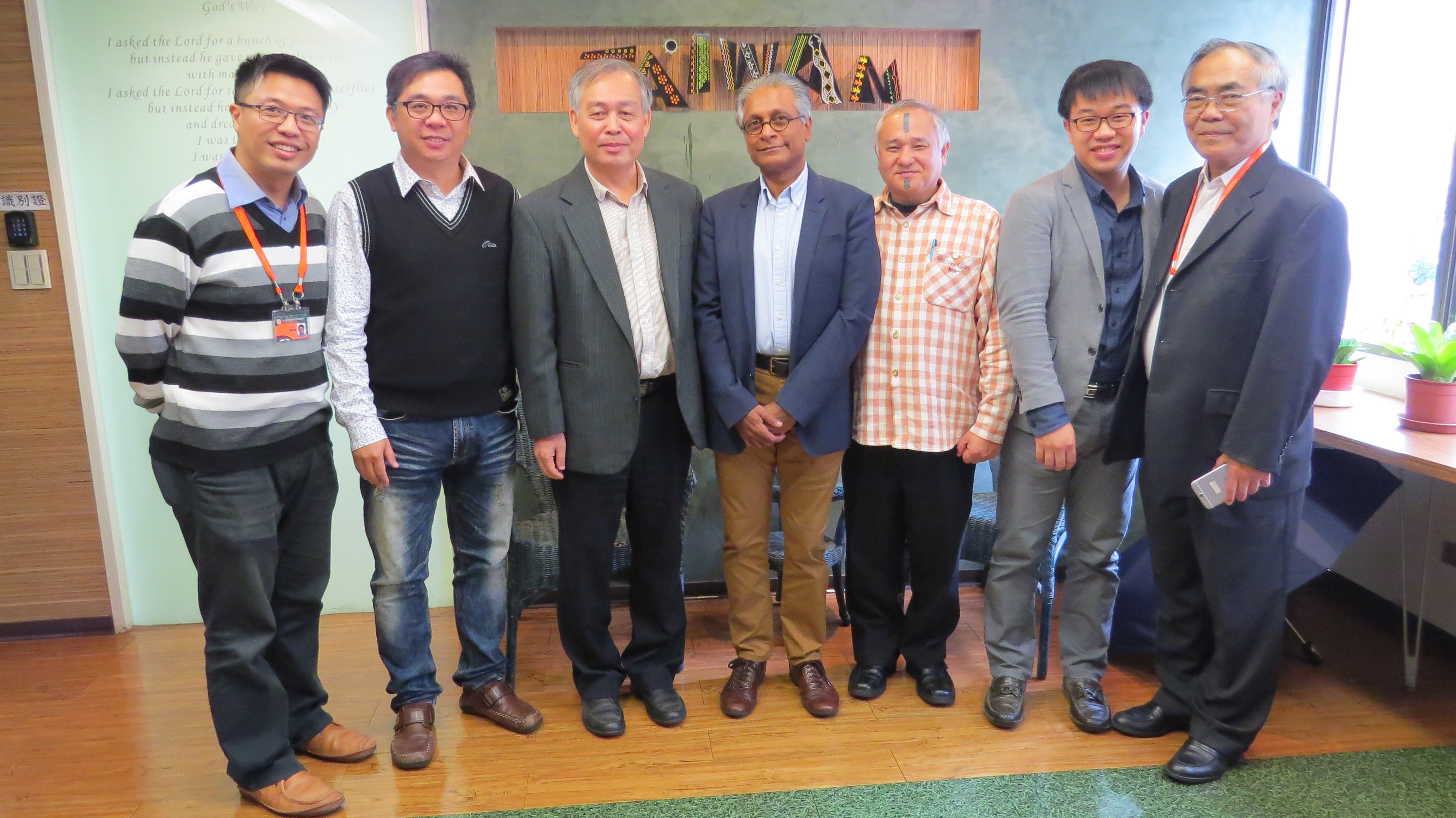
URC普世幹事Rev. Dr. Michael Jagessar,Global & Intercultural Ministries (Mission),The United Reformed Church (URC) U.K.於總會事務所早禱會講道。 
the rich man, Lazarus & theology How do we do theology….How do we do ministry after the story of the Rich Man and Lazarus and with warning about the love of money? · Money, Wealth, Riches have an interesting relationship with the Christian faith. ·At least The borderland between faith and money has not been a comfortable place to live: mammon still competes with God for the loyalty of even the most devout. The reading got me thinking about the line from Abba: “Money, Money, must be funny in the Rich Man’s world!” Money, Wealth and the inordinate desire for more seem to be what drives much around us: “I shop, I own, I profit, I am ME, therefore I am” ·Economic pundits tell us: “Compete. Make yourselves cheap!” The redistribution of the world’s wealth depends on growth.” Tell Lazarus that and he would faint. What the experts mean is: ·that redistribution is from the poor to the rich; growth is at the expense of the poor. For the rich [within and between nations] – the poor must always be there for them to stay rich. No wonder Lazarus was at the rich man’s gate – already far gone by the time Jesus caught up with his story. Finding words for God-talk in a context where poverty stares at you in the face and with the glaring disparity between the Rich and the Lazaruses ever widening - is a test for any ministry as we share the good news of abundant life for all while balancing budgets. ·Sure the poor will take heart over God’s preferential option for them – but not in the after life like Lazarus. ·This is where I have a problem with this narrative: how it has been used to tell people not to bother about their present condition – all will be sorted in heaven where the reversals happen. o Even Father Abraham seemed unable to question the inherited theology that will cause some to: “reap good things and others evil things” ·Poor people rightly want to enjoy the benefits here and now – life before death – and theological conversations between Lazarus and Abraham – especially those that continue to silence them (in heaven) are of no interest. ·For the logic of the economy of the world is: more money means freedom or independence or self worth; will open doors, remove anxieties and will make us happier. So we are led to believe. ·In a world characterised by turbo-everything fuelled largely by economic growth and the mad Rush to Nowhere - what are we actually reaping? o Personal happiness has become big business in spite of our wealth. The new Holy Grail is happiness. Health professionals face new epidemics of ‘hurry sickness’, ‘toxic success syndrome’, the ‘frantic family’, the ‘over-commercialized child’ and ‘pleonexia’ or out-of-control greed. Too much is no longer enough. ‘Does money/wealth make us happy?’ ·That question gets an interesting answer from those who have visited developing countries or Lazarus corners either via church or relief agency. o The usual remark is: ‘People are so poor, they have nothing – and yet they have so much joy and seem so happy.’ ·World Bank technocrats aware of this unexplainable fact reasoned that: ‘If such countries are ever going to be developed, we have to figure out how to make these people greedier”. The powerful, most of the times, will win and the greed economy will take root. For many will believe the happiness conspiracy about wealth. Back to the rich man: he doesn’t get it in the end. His indifference to Lazarus is still present. Even in this supposed after-life scene he does not ask Lazarus for forgiveness. He is demanding mercy. Lazarus, on the other hand is passive throughout the story – not given any agency. - The Rich & powerful Man’s heart is gone. He clings to privilege even in his hell.
- "Send Lazarus to help me," he pleads – is not an idle line. It betrays habits of control. The Rich Man still believes that he can command and expect a response.
- His unyielding assumptions about what’s best and who deserves what have made him insensible to his situation.
- He continues to locate himself and others in the old geography of earned or inherited worth.
So what message there is for the progeny of the Rich Man? What hope there is for the millions of Lazarsuses – victims of the Rich Man’s difference? The bible does not offer us a template. We have pointers, signs and symbols and much more…. ·Take the Lord’s table as one example: it is an open table, welcoming space, for all to gather around [not some while others crawl underneath for the crumbs], here is a free movement of people to and from; here grace overflows - ·In the bread blessed, broken, and shared and the cup, blessed, poured and shared there is a new kind of economy at work [to gain is to lose]. It is an illogical and unreasonable economy based on concrete LOVE – where all the rules, hierarchies and excluding practices are transgressed & reversed – countering the logic of the market economy and its theologies that create tables of excluding spaces. ·It speaks of a liturgy of abundance not the liturgy of scarcity that which drives the economics of the Rich. ·Every time we eat bread - we proclaim that we refuse to let our lives be dictated by the liturgy of scarcity. Our script is alternative: the Jesus Way of fullness and abundance. ·For where our treasure is, there will our heart be also.” Do this and it will make you remember me! 
|